afterLoad (456.28KB) (809μs)
afterInitialise (1.27MB) (58.68ms)
afterRoute (870.44KB) (22.76ms)
beforeRenderComponent com_tags (20.38KB) (283μs)
afterRenderComponent com_tags (2.56MB) (250ms)
afterDispatch (27.16KB) (3.12ms)
beforeRenderRawModule mod_articles_category (READ MORE...) (372.12KB) (18.33ms)
Before Access::preloadComponents (all components) (56.7KB) (1.79ms)
After Access::preloadComponents (all components) (103.05KB) (2.58ms)
Before Access::getAssetRules (id:8 name:com_content) (840B) (18μs)
After Access::getAssetRules (id:8 name:com_content) (7.05KB) (40μs)
afterRenderRawModule mod_articles_category (READ MORE...) (10.58KB) (177ms)
beforeRenderRawModule mod_tags_popular (Search) (4.81KB) (32μs)
afterRenderRawModule mod_tags_popular (Search) (1.74KB) (126ms)
beforeRenderRawModule mod_custom (Remember to download Heart Healthy Seniors) (816B) (26μs)
afterRenderRawModule mod_custom (Remember to download Heart Healthy Seniors) (4.86KB) (219μs)
beforeRenderRawModule mod_custom (Get additionel and more detailed knowledge ) (752B) (13μs)
afterRenderRawModule mod_custom (Get additionel and more detailed knowledge ) (1.67KB) (27μs)
beforeRenderRawModule mod_custom (BOOST YOUR IMMUNE DEFENSE) (608B) (10μs)
afterRenderRawModule mod_custom (BOOST YOUR IMMUNE DEFENSE) (928B) (21μs)
beforeRenderRawModule mod_custom (Are you taking supplements) (736B) (9μs)
afterRenderRawModule mod_custom (Are you taking supplements) (1.03KB) (18μs)
beforeRenderRawModule mod_custom (Antiaging) (720B) (8μs)
afterRenderRawModule mod_custom (Antiaging) (1.02KB) (18μs)
beforeRenderRawModule mod_custom (Exercise) (720B) (9μs)
afterRenderRawModule mod_custom (Exercise) (1.02KB) (20μs)
beforeRenderRawModule mod_custom (Check this before you buy a Q10 product) (752B) (9μs)
afterRenderRawModule mod_custom (Check this before you buy a Q10 product) (944B) (18μs)
beforeRenderRawModule mod_custom (Chronic fatigue tied Alan to his bed but Q10 capsules saved him:) (245.53KB) (5.27ms)
afterRenderRawModule mod_custom (Chronic fatigue tied Alan to his bed but Q10 capsules saved him:) (960B) (47μs)
beforeRenderModule mod_custom (Chronic fatigue tied Alan to his bed but Q10 capsules saved him:) (768B) (5μs)
afterRenderModule mod_custom (Chronic fatigue tied Alan to his bed but Q10 capsules saved him:) (1.3KB) (58μs)
beforeRenderRawModule mod_custom (Cholesterol-lowering without side effects:) (368B) (14μs)
afterRenderRawModule mod_custom (Cholesterol-lowering without side effects:) (2.19KB) (25μs)
beforeRenderModule mod_custom (Cholesterol-lowering without side effects:) (752B) (2μs)
afterRenderModule mod_custom (Cholesterol-lowering without side effects:) (1.28KB) (29μs)
beforeRenderModule mod_articles_category (READ MORE...) (21.32KB) (360μs)
afterRenderModule mod_articles_category (READ MORE...) (1.25KB) (35μs)
beforeRenderModule mod_tags_popular (Search) (5.17KB) (13μs)
afterRenderModule mod_tags_popular (Search) (1.27KB) (24μs)
beforeRenderModule mod_custom (Remember to download Heart Healthy Seniors) (1.17KB) (10μs)
afterRenderModule mod_custom (Remember to download Heart Healthy Seniors) (1.3KB) (23μs)
beforeRenderModule mod_custom (Get additionel and more detailed knowledge ) (368B) (9μs)
afterRenderModule mod_custom (Get additionel and more detailed knowledge ) (1.3KB) (21μs)
beforeRenderModule mod_custom (BOOST YOUR IMMUNE DEFENSE) (224B) (9μs)
afterRenderModule mod_custom (BOOST YOUR IMMUNE DEFENSE) (1.28KB) (20μs)
beforeRenderModule mod_custom (Are you taking supplements) (352B) (9μs)
afterRenderModule mod_custom (Are you taking supplements) (1.28KB) (1.25ms)
beforeRenderModule mod_custom (Antiaging) (336B) (14μs)
afterRenderModule mod_custom (Antiaging) (1.27KB) (26μs)
beforeRenderModule mod_custom (Exercise) (336B) (10μs)
afterRenderModule mod_custom (Exercise) (1.25KB) (22μs)
beforeRenderModule mod_custom (Check this before you buy a Q10 product) (352B) (9μs)
afterRenderModule mod_custom (Check this before you buy a Q10 product) (1.28KB) (21μs)
beforeRenderRawModule mod_menu (Main menu-US) (20.94KB) (568μs)
afterRenderRawModule mod_menu (Main menu-US) (152.66KB) (3.53ms)
beforeRenderModule mod_menu (Main menu-US) (720B) (6μs)
afterRenderModule mod_menu (Main menu-US) (4.36KB) (54μs)
beforeRenderRawModule mod_languages (Sprogskift) (3.44KB) (19μs)
afterRenderRawModule mod_languages (Sprogskift) (26.77KB) (3.78ms)
beforeRenderModule mod_languages (Sprogskift) (720B) (6μs)
afterRenderModule mod_languages (Sprogskift) (5.31KB) (22μs)
beforeRenderRawModule mod_finder () (6.34KB) (12μs)
afterRenderRawModule mod_finder () (214.16KB) (4.18ms)
beforeRenderModule mod_finder () (704B) (5μs)
afterRenderModule mod_finder () (5.79KB) (33μs)
beforeRenderRawModule mod_custom () (6.62KB) (138μs)
afterRenderRawModule mod_custom () (22.67KB) (2.96ms)
beforeRenderModule mod_custom () (704B) (7μs)
afterRenderModule mod_custom () (1.23KB) (48μs)
beforeRenderRawModule mod_menu (Main menu-US) (5.07KB) (105μs)
afterRenderRawModule mod_menu (Main menu-US) (5.8KB) (1.86ms)
beforeRenderModule mod_menu (Main menu-US) (720B) (4μs)
afterRenderModule mod_menu (Main menu-US) (1.25KB) (47μs)
beforeRenderRawModule mod_languages (Sprogskift Mobil) (912B) (17μs)
afterRenderRawModule mod_languages (Sprogskift Mobil) (3.89KB) (1.67ms)
beforeRenderModule mod_languages (Sprogskift Mobil) (720B) (4μs)
afterRenderModule mod_languages (Sprogskift Mobil) (1.27KB) (34μs)
beforeRenderRawModule mod_finder () (2.3KB) (10μs)
afterRenderRawModule mod_finder () (6.29KB) (512μs)
beforeRenderModule mod_finder () (704B) (4μs)
afterRenderModule mod_finder () (1.23KB) (45μs)
beforeRenderRawModule mod_custom () (8.66KB) (189μs)
afterRenderRawModule mod_custom () (904B) (165μs)
beforeRenderModule mod_custom () (704B) (3μs)
afterRenderModule mod_custom () (2.43KB) (27μs)
beforeRenderRawModule mod_custom () (688B) (90μs)
afterRenderRawModule mod_custom () (896B) (99μs)
beforeRenderModule mod_custom () (704B) (3μs)
afterRenderModule mod_custom () (2.71KB) (22μs)
afterRender (536.21KB) (22.69ms)
| 1 x afterRenderComponent com_tags (2.56MB) (34.85%) | 250.50ms |
| 1 x afterRenderRawModule mod_articles_category (READ MORE...) (10.58KB) (24.67%) | 177.35ms |
| 1 x afterRenderRawModule mod_tags_popular (Search) (1.74KB) (17.49%) | 125.69ms |
| 1 x afterInitialise (1.27MB) (8.16%) | 58.68ms |
| 1 x afterRoute (870.44KB) (3.17%) | 22.76ms |
| 1 x afterRender (536.21KB) (3.16%) | 22.69ms |
| 1 x beforeRenderRawModule mod_articles_category (READ MORE...) (372.12KB) (2.55%) | 18.33ms |
| 1 x beforeRenderRawModule mod_custom (Chronic fatigue tied Alan to his bed but Q10 capsules saved him:) (245.53KB) (0.73%) | 5.27ms |
| 1 x afterRenderRawModule mod_finder () (214.16KB) (0.58%) | 4.18ms |
| 1 x afterRenderRawModule mod_languages (Sprogskift) (26.77KB) (0.53%) | 3.78ms |
| 1 x afterRenderRawModule mod_menu (Main menu-US) (152.66KB) (0.49%) | 3.53ms |
| 1 x afterDispatch (27.16KB) (0.43%) | 3.12ms |
| 1 x afterRenderRawModule mod_custom () (22.67KB) (0.41%) | 2.96ms |
| 1 x After Access::preloadComponents (all components) (103.05KB) (0.36%) | 2.58ms |
| 1 x afterRenderRawModule mod_menu (Main menu-US) (5.8KB) (0.26%) | 1.86ms |
| 1 x Before Access::preloadComponents (all components) (56.7KB) (0.25%) | 1.79ms |
| 1 x afterRenderRawModule mod_languages (Sprogskift Mobil) (3.89KB) (0.23%) | 1.67ms |
| 1 x afterRenderModule mod_custom (Are you taking supplements) (1.28KB) (0.17%) | 1.25ms |
| 1 x afterLoad (456.28KB) (0.11%) | 809μs |
| 1 x beforeRenderRawModule mod_menu (Main menu-US) (20.94KB) (0.08%) | 568μs |
| 1 x afterRenderRawModule mod_finder () (6.29KB) (0.07%) | 512μs |
| 1 x beforeRenderModule mod_articles_category (READ MORE...) (21.32KB) (0.05%) | 360μs |
| 1 x beforeRenderComponent com_tags (20.38KB) (0.04%) | 283μs |
| 1 x afterRenderRawModule mod_custom (Remember to download Heart Healthy Seniors) (4.86KB) (0.03%) | 219μs |
| 1 x beforeRenderRawModule mod_custom () (8.66KB) (0.03%) | 189μs |
| 1 x afterRenderRawModule mod_custom () (904B) (0.02%) | 165μs |
| 1 x beforeRenderRawModule mod_custom () (6.62KB) (0.02%) | 138μs |
| 1 x beforeRenderRawModule mod_menu (Main menu-US) (5.07KB) (0.01%) | 105μs |
| 1 x afterRenderRawModule mod_custom () (896B) (0.01%) | 99μs |
| 1 x beforeRenderRawModule mod_custom () (688B) (0.01%) | 90μs |
| 1 x afterRenderModule mod_custom (Chronic fatigue tied Alan to his bed but Q10 capsules saved him:) (1.3KB) (0.01%) | 58μs |
| 1 x afterRenderModule mod_menu (Main menu-US) (4.36KB) (0.01%) | 54μs |
| 1 x afterRenderModule mod_custom () (1.23KB) (0.01%) | 48μs |
| 1 x afterRenderRawModule mod_custom (Chronic fatigue tied Alan to his bed but Q10 capsules saved him:) (960B) (0.01%) | 47μs |
| 1 x afterRenderModule mod_menu (Main menu-US) (1.25KB) (0.01%) | 47μs |
| 1 x afterRenderModule mod_finder () (1.23KB) (0.01%) | 45μs |
| 1 x After Access::getAssetRules (id:8 name:com_content) (7.05KB) (0.01%) | 40μs |
| 1 x afterRenderModule mod_articles_category (READ MORE...) (1.25KB) (0%) | 35μs |
| 1 x afterRenderModule mod_languages (Sprogskift Mobil) (1.27KB) (0%) | 34μs |
| 1 x afterRenderModule mod_finder () (5.79KB) (0%) | 33μs |
| 1 x beforeRenderRawModule mod_tags_popular (Search) (4.81KB) (0%) | 32μs |
| 1 x afterRenderModule mod_custom (Cholesterol-lowering without side effects:) (1.28KB) (0%) | 29μs |
| 1 x afterRenderRawModule mod_custom (Get additionel and more detailed knowledge ) (1.67KB) (0%) | 27μs |
| 1 x afterRenderModule mod_custom () (2.43KB) (0%) | 27μs |
| 1 x beforeRenderRawModule mod_custom (Remember to download Heart Healthy Seniors) (816B) (0%) | 26μs |
| 1 x afterRenderModule mod_custom (Antiaging) (1.27KB) (0%) | 26μs |
| 1 x afterRenderRawModule mod_custom (Cholesterol-lowering without side effects:) (2.19KB) (0%) | 25μs |
| 1 x afterRenderModule mod_tags_popular (Search) (1.27KB) (0%) | 24μs |
| 1 x afterRenderModule mod_custom (Remember to download Heart Healthy Seniors) (1.3KB) (0%) | 23μs |
| 1 x afterRenderModule mod_custom () (2.71KB) (0%) | 22μs |
| 1 x afterRenderModule mod_custom (Exercise) (1.25KB) (0%) | 22μs |
| 1 x afterRenderModule mod_languages (Sprogskift) (5.31KB) (0%) | 22μs |
| 1 x afterRenderRawModule mod_custom (BOOST YOUR IMMUNE DEFENSE) (928B) (0%) | 21μs |
| 1 x afterRenderModule mod_custom (Get additionel and more detailed knowledge ) (1.3KB) (0%) | 21μs |
| 1 x afterRenderModule mod_custom (Check this before you buy a Q10 product) (1.28KB) (0%) | 21μs |
| 1 x afterRenderRawModule mod_custom (Exercise) (1.02KB) (0%) | 20μs |
| 1 x afterRenderModule mod_custom (BOOST YOUR IMMUNE DEFENSE) (1.28KB) (0%) | 20μs |
| 1 x beforeRenderRawModule mod_languages (Sprogskift) (3.44KB) (0%) | 19μs |
| 1 x Before Access::getAssetRules (id:8 name:com_content) (840B) (0%) | 18μs |
| 1 x afterRenderRawModule mod_custom (Are you taking supplements) (1.03KB) (0%) | 18μs |
| 1 x afterRenderRawModule mod_custom (Antiaging) (1.02KB) (0%) | 18μs |
| 1 x afterRenderRawModule mod_custom (Check this before you buy a Q10 product) (944B) (0%) | 18μs |
| 1 x beforeRenderRawModule mod_languages (Sprogskift Mobil) (912B) (0%) | 17μs |
| 1 x beforeRenderRawModule mod_custom (Cholesterol-lowering without side effects:) (368B) (0%) | 14μs |
| 1 x beforeRenderModule mod_custom (Antiaging) (336B) (0%) | 14μs |
| 1 x beforeRenderRawModule mod_custom (Get additionel and more detailed knowledge ) (752B) (0%) | 13μs |
| 1 x beforeRenderModule mod_tags_popular (Search) (5.17KB) (0%) | 13μs |
| 3 x beforeRenderModule mod_custom () (704B) (0%) | 13μs |
| 1 x beforeRenderRawModule mod_finder () (6.34KB) (0%) | 12μs |
| 1 x beforeRenderRawModule mod_custom (BOOST YOUR IMMUNE DEFENSE) (608B) (0%) | 10μs |
| 1 x beforeRenderModule mod_custom (Remember to download Heart Healthy Seniors) (1.17KB) (0%) | 10μs |
| 1 x beforeRenderModule mod_custom (Exercise) (336B) (0%) | 10μs |
| 2 x beforeRenderModule mod_menu (Main menu-US) (720B) (0%) | 10μs |
| 1 x beforeRenderRawModule mod_finder () (2.3KB) (0%) | 10μs |
| 1 x beforeRenderRawModule mod_custom (Are you taking supplements) (736B) (0%) | 9μs |
| 1 x beforeRenderRawModule mod_custom (Exercise) (720B) (0%) | 9μs |
| 1 x beforeRenderRawModule mod_custom (Check this before you buy a Q10 product) (752B) (0%) | 9μs |
| 1 x beforeRenderModule mod_custom (Get additionel and more detailed knowledge ) (368B) (0%) | 9μs |
| 1 x beforeRenderModule mod_custom (BOOST YOUR IMMUNE DEFENSE) (224B) (0%) | 9μs |
| 1 x beforeRenderModule mod_custom (Are you taking supplements) (352B) (0%) | 9μs |
| 1 x beforeRenderModule mod_custom (Check this before you buy a Q10 product) (352B) (0%) | 9μs |
| 2 x beforeRenderModule mod_finder () (704B) (0%) | 9μs |
| 1 x beforeRenderRawModule mod_custom (Antiaging) (720B) (0%) | 8μs |
| 1 x beforeRenderModule mod_languages (Sprogskift) (720B) (0%) | 6μs |
| 1 x beforeRenderModule mod_custom (Chronic fatigue tied Alan to his bed but Q10 capsules saved him:) (768B) (0%) | 5μs |
| 1 x beforeRenderModule mod_languages (Sprogskift Mobil) (720B) (0%) | 4μs |
| 1 x beforeRenderModule mod_custom (Cholesterol-lowering without side effects:) (752B) (0%) | 2μs |
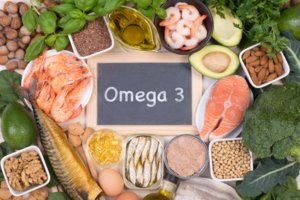 Cardiovascular diseases account for more deaths than anything else. Still, there is a lot of discussion about the diet and its impact on cardiovascular health, typically when it comes to the question of avoiding fat and choosing margarine instead of butter. A team of Czech scientists decided to study diet habits among different populations and compare these with the risk of cardiovascular disease and premature death. Their study shows that there is no need to be afraid of cholesterol. In fact, the official dietary guidelines could easily do with an adjustment. At the same time, it is important to reduce our intake of carbohydrates and omega-6 fatty acids that are the real culprits. Finally, it is essential to increase the intake of omega-3.
Cardiovascular diseases account for more deaths than anything else. Still, there is a lot of discussion about the diet and its impact on cardiovascular health, typically when it comes to the question of avoiding fat and choosing margarine instead of butter. A team of Czech scientists decided to study diet habits among different populations and compare these with the risk of cardiovascular disease and premature death. Their study shows that there is no need to be afraid of cholesterol. In fact, the official dietary guidelines could easily do with an adjustment. At the same time, it is important to reduce our intake of carbohydrates and omega-6 fatty acids that are the real culprits. Finally, it is essential to increase the intake of omega-3.








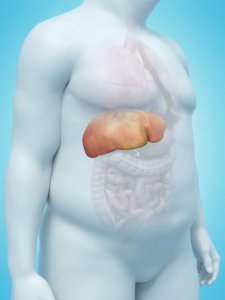 It has been known for a long time that a lack of vitamin D increases your risk of overweight. Now, an Italian study gives a whole new view on low vitamin D and how it is linked to elevated levels of TMAO (Trimethylamine N-oxide), a metabolite that increases the risk of non-alcoholic fatty liver and accompanying complications such as insulin resistance, diabetes, and cardiovascular disease. The scientists also looked at the gut flora’s and the liver’s roles in TMAO production and the fact that low vitamin D levels and overweight are a vicious cycle. It appears that overweight people need more vitamin D than the recommended level. In terms of non-alcoholic fatty liver, we will also be looking at the controversial delicacy, foie gras, and the fact that carbohydrate overconsumption burdens your liver.
It has been known for a long time that a lack of vitamin D increases your risk of overweight. Now, an Italian study gives a whole new view on low vitamin D and how it is linked to elevated levels of TMAO (Trimethylamine N-oxide), a metabolite that increases the risk of non-alcoholic fatty liver and accompanying complications such as insulin resistance, diabetes, and cardiovascular disease. The scientists also looked at the gut flora’s and the liver’s roles in TMAO production and the fact that low vitamin D levels and overweight are a vicious cycle. It appears that overweight people need more vitamin D than the recommended level. In terms of non-alcoholic fatty liver, we will also be looking at the controversial delicacy, foie gras, and the fact that carbohydrate overconsumption burdens your liver.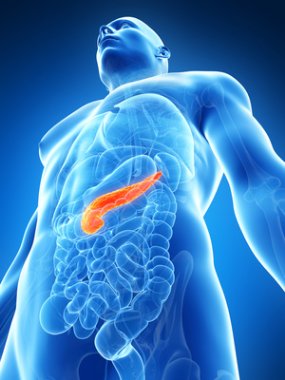 A new American study shows that chronic alcohol abuse impairs the ability of the pancreas to absorb vitamin C, and that increases the risk of infection of the pancreas (pancreatitis) and other diseases. Lack of certain B vitamins may also damage the pancreas and increase the risk of encephalitis
A new American study shows that chronic alcohol abuse impairs the ability of the pancreas to absorb vitamin C, and that increases the risk of infection of the pancreas (pancreatitis) and other diseases. Lack of certain B vitamins may also damage the pancreas and increase the risk of encephalitis It is widely established that women of childbearing age have high levels of estrogen that protect them against cardiovascular disease. However, if they have type 1 diabetes, having high estrogen levels actually increases their risk of these diseases. A group of scientists is therefore planning to investigate whether nutritional supplements with antioxidants can protect diabetics against cardiovascular disease and the premature death caused by these ailments.
It is widely established that women of childbearing age have high levels of estrogen that protect them against cardiovascular disease. However, if they have type 1 diabetes, having high estrogen levels actually increases their risk of these diseases. A group of scientists is therefore planning to investigate whether nutritional supplements with antioxidants can protect diabetics against cardiovascular disease and the premature death caused by these ailments.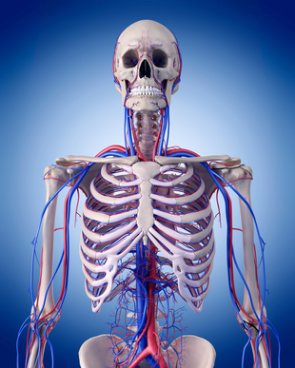 Many people take calcium supplements to prevent osteoporosis. However, research shows that high-dosage calcium supplements may harm your heart and cardiovascular system. It is important that you take calcium in the right balance with vitamin D and magnesium if you want the calcium to get absorbed properly and get all the way into your bones.
Many people take calcium supplements to prevent osteoporosis. However, research shows that high-dosage calcium supplements may harm your heart and cardiovascular system. It is important that you take calcium in the right balance with vitamin D and magnesium if you want the calcium to get absorbed properly and get all the way into your bones.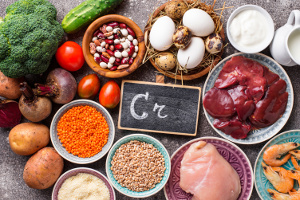 Chromium is primarily known for its role in insulin utilization and blood sugar control. However, chromium is also important for macronutrient metabolism and the circulatory system. Chromium’s role in health has been debated and a group of scientists have looked closer at the link between low blood levels of chromium and global health burdens such as cardiovascular disease, type 2 diabetes, and depression. How do we get enough chromium from the diet and what supplements have the highest bioavailability?
Chromium is primarily known for its role in insulin utilization and blood sugar control. However, chromium is also important for macronutrient metabolism and the circulatory system. Chromium’s role in health has been debated and a group of scientists have looked closer at the link between low blood levels of chromium and global health burdens such as cardiovascular disease, type 2 diabetes, and depression. How do we get enough chromium from the diet and what supplements have the highest bioavailability?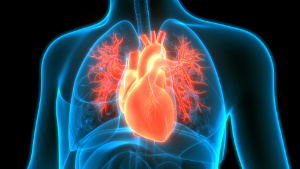 Seniors have an increased risk of cardiovascular disease, which is the leading cause of death. It is commonly known that diet plays a key role in preventing these diseases, and a team of scientists therefore decided to look closer at zinc because of this nutrient’s many functions in the heart and cardiovascular system. The scientists found that older people often lack zinc for different reasons. Therefore, the dietary guidelines for zinc in old age should be reconsidered with regard to cardiovascular health and other zinc-dependent functions.
Seniors have an increased risk of cardiovascular disease, which is the leading cause of death. It is commonly known that diet plays a key role in preventing these diseases, and a team of scientists therefore decided to look closer at zinc because of this nutrient’s many functions in the heart and cardiovascular system. The scientists found that older people often lack zinc for different reasons. Therefore, the dietary guidelines for zinc in old age should be reconsidered with regard to cardiovascular health and other zinc-dependent functions.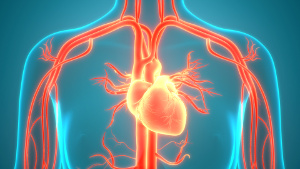 Life cannot exist without coenzyme Q10. The compound is necessary for the energy turnover in all our cells. It also functions as a powerful antioxidant that protects the heart and cardiovascular system against oxidative stress. Humans are able to synthesize Q10 but our endogenous production decreases with age. Heart failure patients also have reduced levels of Q10 which can be fatal, but decades of research have shown that Q10 supplements can improve quality of life and reduce mortality by close to 50 percent, according to a review article in Journal of Clinical Medicine. Here, the authors refer to 90 published articles. It is also important to get enough selenium, which helps Q10 function optimally.
Life cannot exist without coenzyme Q10. The compound is necessary for the energy turnover in all our cells. It also functions as a powerful antioxidant that protects the heart and cardiovascular system against oxidative stress. Humans are able to synthesize Q10 but our endogenous production decreases with age. Heart failure patients also have reduced levels of Q10 which can be fatal, but decades of research have shown that Q10 supplements can improve quality of life and reduce mortality by close to 50 percent, according to a review article in Journal of Clinical Medicine. Here, the authors refer to 90 published articles. It is also important to get enough selenium, which helps Q10 function optimally. Apparently so, according to a study that reveals how supplements of vitamin C reduce vasoconstriction in overweight individuals who, because of an increased tendency to this problem, have an elevated risk of cardiovascular ailments.
Apparently so, according to a study that reveals how supplements of vitamin C reduce vasoconstriction in overweight individuals who, because of an increased tendency to this problem, have an elevated risk of cardiovascular ailments.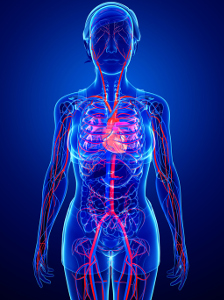 Fish oil contains the long-chained omega-3 fatty acids, EPA and DHA, that have a number of essential functions. Although it has been known for decades that fish oil lowers the risk of cardiovascular disease and early death, study results have been conflicting. Now, a large British population study of over 400,000 people confirms that regular consumption of fish oil supplements has a positive effect on the cardiovascular system and contributes to improved quality of longevity. The scientists also address that the quantity of fish oil may be determining for your health.
Fish oil contains the long-chained omega-3 fatty acids, EPA and DHA, that have a number of essential functions. Although it has been known for decades that fish oil lowers the risk of cardiovascular disease and early death, study results have been conflicting. Now, a large British population study of over 400,000 people confirms that regular consumption of fish oil supplements has a positive effect on the cardiovascular system and contributes to improved quality of longevity. The scientists also address that the quantity of fish oil may be determining for your health.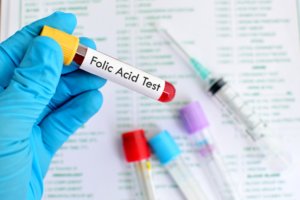
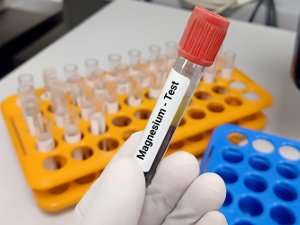 Chronic heart failure is a clinical syndrome that involves, among other things, reduced heart pumping function. The condition is often life-threatening. A new study that is published in Journal of the American Heart Association looks closer at how supplementation with magnesium can help the heart muscle contract with greater force and perhaps be a useful adjuvant in the treatment of heart failure. The study supports another study that is published in Diabetes Care. In this study, it is demonstrated that lack of magnesium is linked to heart failure, atrial fibrillation, and other complications from type 2 diabetes.
Chronic heart failure is a clinical syndrome that involves, among other things, reduced heart pumping function. The condition is often life-threatening. A new study that is published in Journal of the American Heart Association looks closer at how supplementation with magnesium can help the heart muscle contract with greater force and perhaps be a useful adjuvant in the treatment of heart failure. The study supports another study that is published in Diabetes Care. In this study, it is demonstrated that lack of magnesium is linked to heart failure, atrial fibrillation, and other complications from type 2 diabetes.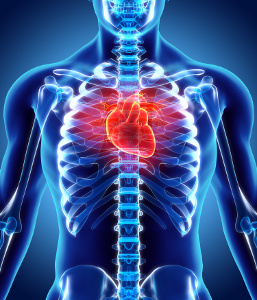 Cardiovascular disease is the leading cause of death worldwide, and our diet and lifestyle play a major role. According to an Australian study published in British Medical Journal, high-dosed vitamin D supplementation taken for several years lowers the risk of heart attacks or interventions such as angioplasty and by-pass surgery in people aged 60 years and older.
Cardiovascular disease is the leading cause of death worldwide, and our diet and lifestyle play a major role. According to an Australian study published in British Medical Journal, high-dosed vitamin D supplementation taken for several years lowers the risk of heart attacks or interventions such as angioplasty and by-pass surgery in people aged 60 years and older. It is commonly known that degenerative diseases such as cardiovascular disease, diabetes, kidney ailments, and liver diseases are often linked to poor quality of life and shorter lifespan. Supplementing with Q10, possibly in combination with selenium yeast, may have a positive influence on the mentioned conditions and lower your risk of premature death by as much as 50 percent or more. In fact, Q10 can help delay the ageing processes by protecting the heart, cardiovascular system, and cells, according to a large review article published online by NCBI (National Center for Biotechnology Information). As mentioned in this article, it is essential to use supplements that are pharmaceutical-grade in order to ensure proper absorption in blood and tissue.
It is commonly known that degenerative diseases such as cardiovascular disease, diabetes, kidney ailments, and liver diseases are often linked to poor quality of life and shorter lifespan. Supplementing with Q10, possibly in combination with selenium yeast, may have a positive influence on the mentioned conditions and lower your risk of premature death by as much as 50 percent or more. In fact, Q10 can help delay the ageing processes by protecting the heart, cardiovascular system, and cells, according to a large review article published online by NCBI (National Center for Biotechnology Information). As mentioned in this article, it is essential to use supplements that are pharmaceutical-grade in order to ensure proper absorption in blood and tissue.
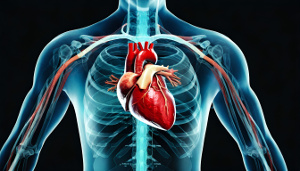
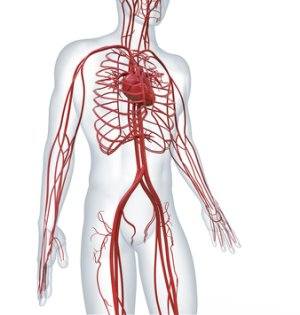 In a matter of four months only, large doses of vitamin D were able to reduce arterial stiffness in young, overweight but otherwise healthy Afro-Americans, according to a study from Georgia, the United States. The study also showed that those participants, who only took the officially recommended quantities of vitamin D, had increased arterial stiffness. This suggests that the official vitamin D recommendations are too low to prevent stiff arteries and atherosclerosis. Another thing is that dark-skinned people living at northern latitudes, overweight individuals, older people diabetics, and those who overuse sun screen are at increased risk of synthesizing too little vitamin D.
In a matter of four months only, large doses of vitamin D were able to reduce arterial stiffness in young, overweight but otherwise healthy Afro-Americans, according to a study from Georgia, the United States. The study also showed that those participants, who only took the officially recommended quantities of vitamin D, had increased arterial stiffness. This suggests that the official vitamin D recommendations are too low to prevent stiff arteries and atherosclerosis. Another thing is that dark-skinned people living at northern latitudes, overweight individuals, older people diabetics, and those who overuse sun screen are at increased risk of synthesizing too little vitamin D.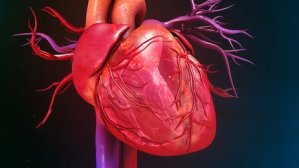 It is essential that your heart is able to pump optimally throughout life. A study from Medical College of Georgia, Augusta University, the United States, has just shown that a diet with low levels of vitamin K1 from dark, leafy greens increases your risk of an unhealthy enlargement of the heart’s left ventricle that pumps the oxygenated blood to the aorta (the body’s largest artery). The scientists even observed this enlargement in teenagers. Vitamin K1 is primarily known for its role in the blood coagulation process, but it is also converted to vitamin K2 in our gut flora. In fact, it is vitamin K2 that is important for the heart and cardiovascular system.
It is essential that your heart is able to pump optimally throughout life. A study from Medical College of Georgia, Augusta University, the United States, has just shown that a diet with low levels of vitamin K1 from dark, leafy greens increases your risk of an unhealthy enlargement of the heart’s left ventricle that pumps the oxygenated blood to the aorta (the body’s largest artery). The scientists even observed this enlargement in teenagers. Vitamin K1 is primarily known for its role in the blood coagulation process, but it is also converted to vitamin K2 in our gut flora. In fact, it is vitamin K2 that is important for the heart and cardiovascular system.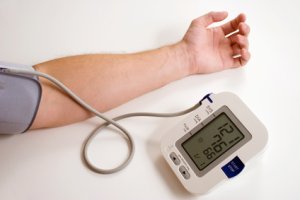 Cardiovascular disease is one of the leading causes of death. It is therefore vital to get enough magnesium because according to research, low blood levels of magnesium are linked to an increased risk of atherosclerosis, hypertension, and type-2 diabetes.
Cardiovascular disease is one of the leading causes of death. It is therefore vital to get enough magnesium because according to research, low blood levels of magnesium are linked to an increased risk of atherosclerosis, hypertension, and type-2 diabetes.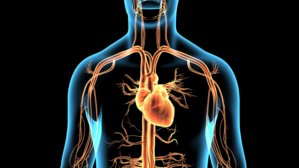 Melatonin is primarily known as a sleep hormone and a powerful antioxidant. According to a new study, melatonin may even improve the condition of rats that have heart rhythm disturbances with an increased risk of heart attack. Melatonin’s ability to improve the heart function is not related to its antioxidant function, however, and that surprised the scientists behind the study. The new study was presented at an annual meeting for the American Physiological Society (APS) in Orlando. Melatonin has several vital functions, but as we age our endogenous production decreases. Not only does this affect our quality of sleep, it also has a negative impact on the heart and the body’s cells.
Melatonin is primarily known as a sleep hormone and a powerful antioxidant. According to a new study, melatonin may even improve the condition of rats that have heart rhythm disturbances with an increased risk of heart attack. Melatonin’s ability to improve the heart function is not related to its antioxidant function, however, and that surprised the scientists behind the study. The new study was presented at an annual meeting for the American Physiological Society (APS) in Orlando. Melatonin has several vital functions, but as we age our endogenous production decreases. Not only does this affect our quality of sleep, it also has a negative impact on the heart and the body’s cells.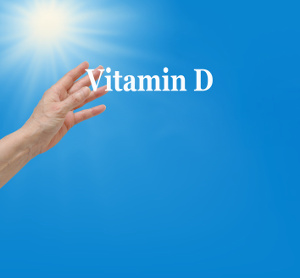 For decades, we’ve been told how dangerous the sun is and how important it is to protect ourselves. Now, a large British population study of more than half a million participants reveals that getting more sun exposure – even using tanning beds – is linked to fewer deaths from cardiovascular disease, cancer, and other things. The explanation lies in the UVB rays, which are the best way to get essential vitamin D, but only when the sun sits sufficiently high in the sky. It appears that all the sun awareness campaigns have done more harm than good, because it is vital to get enough sunlight, as long as we don’t get burned. The British study supports an earlier Swedish population study that revealed that lack of sun is every bit as harmful as smoking. People should take a vitamin D supplement during the winter period, and those who don’t get enough sun or who have difficulty with synthesizing vitamin D should supplement all year round.
For decades, we’ve been told how dangerous the sun is and how important it is to protect ourselves. Now, a large British population study of more than half a million participants reveals that getting more sun exposure – even using tanning beds – is linked to fewer deaths from cardiovascular disease, cancer, and other things. The explanation lies in the UVB rays, which are the best way to get essential vitamin D, but only when the sun sits sufficiently high in the sky. It appears that all the sun awareness campaigns have done more harm than good, because it is vital to get enough sunlight, as long as we don’t get burned. The British study supports an earlier Swedish population study that revealed that lack of sun is every bit as harmful as smoking. People should take a vitamin D supplement during the winter period, and those who don’t get enough sun or who have difficulty with synthesizing vitamin D should supplement all year round.

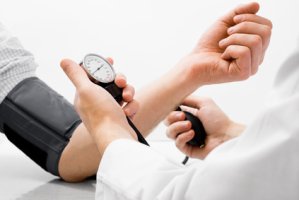 Many older people sleep poorly and tend to have elevated blood pressure. Luckily, supplementation with melatonin seems to correct both problems. Melatonin can even improve sleep in people who take beta-blockers for high blood pressure. So what is melatonin, and why is this substance particularly useful for older people?
Many older people sleep poorly and tend to have elevated blood pressure. Luckily, supplementation with melatonin seems to correct both problems. Melatonin can even improve sleep in people who take beta-blockers for high blood pressure. So what is melatonin, and why is this substance particularly useful for older people?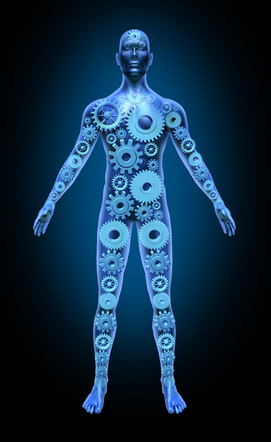 The cellular energy turnover takes place inside some small powerhouses called mitochondria. The condition of these tiny structures is determining for our energy levels and health. That is why it is vital that the mitochondria are adequately supplied with all the necessary nutrients. Q10 and magnesium play a particularly important role.
The cellular energy turnover takes place inside some small powerhouses called mitochondria. The condition of these tiny structures is determining for our energy levels and health. That is why it is vital that the mitochondria are adequately supplied with all the necessary nutrients. Q10 and magnesium play a particularly important role.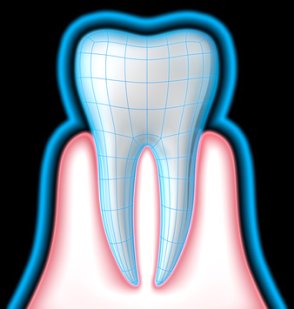 Periodontal disease (tooth loss) affects most of us at some point. Because it is an insidious disease, it is important to set in with early prevention on several accounts. It is not a matter of saving your teeth and smile - your heart and cardiovascular system are also a target of the ailment.
Periodontal disease (tooth loss) affects most of us at some point. Because it is an insidious disease, it is important to set in with early prevention on several accounts. It is not a matter of saving your teeth and smile - your heart and cardiovascular system are also a target of the ailment.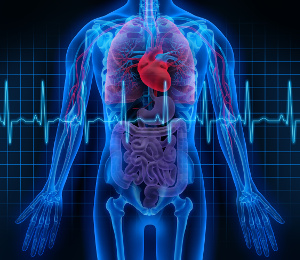 Cardiovascular diseases are widespread and one of the major causes of death. The risk is increased by factors such as ageing, diabetes, and overweight. One of the underlying causes is oxidative stress, which is an imbalance between free radicals and antioxidants. Q10, which is involved in cellular energy turnover, happens to be one of the most powerful antioxidants. According to a review article that is published in the scientific journal Antioxidants, supplementation with Q10 can reduce oxidative stress and cardiovascular mortality. It can also improve quality of life and increase the chances of survival. Generally speaking, Q10 has a huge potential for anyone with a desire to remain healthy, and it is important to choose a supplement with documented quality and bioavailability.
Cardiovascular diseases are widespread and one of the major causes of death. The risk is increased by factors such as ageing, diabetes, and overweight. One of the underlying causes is oxidative stress, which is an imbalance between free radicals and antioxidants. Q10, which is involved in cellular energy turnover, happens to be one of the most powerful antioxidants. According to a review article that is published in the scientific journal Antioxidants, supplementation with Q10 can reduce oxidative stress and cardiovascular mortality. It can also improve quality of life and increase the chances of survival. Generally speaking, Q10 has a huge potential for anyone with a desire to remain healthy, and it is important to choose a supplement with documented quality and bioavailability.

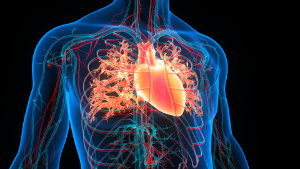 Cardiovascular diseases are the leading cause of death. However, in 2013, Professor Urban Alehagen, a Swedish cardiologist, demonstrated that giving supplements of selenium and Q10 to seniors could strengthen their hearts and reduce their cardiovascular mortality rate by over 50 percent. In follow-ups of his research, it was seen that the two supplements had a long-term effect on lifespan, but there is more to the story. In a whole new study that is published in European Journal of Nutrition, Alehagen manages to show in detail that selenium and Q10 have a positive effect on oxidative stress and inflammation at the same time as improving a number of biomarkers of heart health. He also explains why it can be a challenge to get enough Q10 and selenium through an entire life.
Cardiovascular diseases are the leading cause of death. However, in 2013, Professor Urban Alehagen, a Swedish cardiologist, demonstrated that giving supplements of selenium and Q10 to seniors could strengthen their hearts and reduce their cardiovascular mortality rate by over 50 percent. In follow-ups of his research, it was seen that the two supplements had a long-term effect on lifespan, but there is more to the story. In a whole new study that is published in European Journal of Nutrition, Alehagen manages to show in detail that selenium and Q10 have a positive effect on oxidative stress and inflammation at the same time as improving a number of biomarkers of heart health. He also explains why it can be a challenge to get enough Q10 and selenium through an entire life. Even though sun lovers have an increased risk of developing skin cancer, a recent Swedish study shows that those who sunbathe the most have a lower risk of dying of heart disease and other ailments. Therefore, be sure to get plenty of sun while you can so your body can produce generous amounts of vitamin D - but don't overdo it. Also, you may want to consider taking a vitamin D supplement during the winter period when your body's levels of the nutrient have been depleted, as this may help you live longer.
Even though sun lovers have an increased risk of developing skin cancer, a recent Swedish study shows that those who sunbathe the most have a lower risk of dying of heart disease and other ailments. Therefore, be sure to get plenty of sun while you can so your body can produce generous amounts of vitamin D - but don't overdo it. Also, you may want to consider taking a vitamin D supplement during the winter period when your body's levels of the nutrient have been depleted, as this may help you live longer. Swedish scientists wrote medical history when they discovered that supplementation with Q10 and selenium could halve a person's risk of dying from cardiovascular disease. Now, a 10-year of the Swedish study shows that taking these two supplements even has a notable long-term effect on cardiac function and lifespan.
Swedish scientists wrote medical history when they discovered that supplementation with Q10 and selenium could halve a person's risk of dying from cardiovascular disease. Now, a 10-year of the Swedish study shows that taking these two supplements even has a notable long-term effect on cardiac function and lifespan.
 It is commonly known that fish oil with its high content of the two omega-3 fatty acids EPA and DHA helps prevent atherosclerosis. According to a new international study, it appears to be DHA that has the major effect. This new insight, which has surprised the scientists, is relevant to public health because cardiovascular disease continues to be the leading cause of death.
It is commonly known that fish oil with its high content of the two omega-3 fatty acids EPA and DHA helps prevent atherosclerosis. According to a new international study, it appears to be DHA that has the major effect. This new insight, which has surprised the scientists, is relevant to public health because cardiovascular disease continues to be the leading cause of death. Unhealthy eating habits account for one in five deaths globally and are now considered the single most life-threatening risk factor. In most countries, people could reap a lot of health benefits and live longer by eating healthier diets, but it would be wrong to hold each individual responsible because there is an urgent need for international collaboration that involves politicians, agriculture, the food industry, and the health sector, according to a new study (The Global Burden of Disease) that is published in The Lancet. An earlier and larger Czech study published in the science journal Nutrients calls for a paradigm shift with regard to diet recommendations, claiming that the scaremongering about saturated fat and cholesterol should never have been introduced.
Unhealthy eating habits account for one in five deaths globally and are now considered the single most life-threatening risk factor. In most countries, people could reap a lot of health benefits and live longer by eating healthier diets, but it would be wrong to hold each individual responsible because there is an urgent need for international collaboration that involves politicians, agriculture, the food industry, and the health sector, according to a new study (The Global Burden of Disease) that is published in The Lancet. An earlier and larger Czech study published in the science journal Nutrients calls for a paradigm shift with regard to diet recommendations, claiming that the scaremongering about saturated fat and cholesterol should never have been introduced.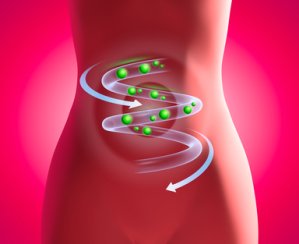 ms of coenzyme Q10 in the body - ubiquinone and ubiquinol - only one of them is able to document an effect. This was recently ascertained by one of the leading Q10 researchers in the world.
ms of coenzyme Q10 in the body - ubiquinone and ubiquinol - only one of them is able to document an effect. This was recently ascertained by one of the leading Q10 researchers in the world.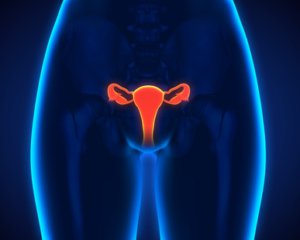 According to a large American study, a high dietary intake of vitamin D and calcium is associated with a lower risk of early-onset menopause, where the menstrual periods cease before a woman reaches 45 years of age. Premature menopause affects around 10 percent of women, and the condition increases the risk of impaired fertility, osteoporosis, cardiovascular disease, and earlier cognitive impairment. The prevention of these diseases is also a matter of getting enough sunshine, magnesium, and omega-3.
According to a large American study, a high dietary intake of vitamin D and calcium is associated with a lower risk of early-onset menopause, where the menstrual periods cease before a woman reaches 45 years of age. Premature menopause affects around 10 percent of women, and the condition increases the risk of impaired fertility, osteoporosis, cardiovascular disease, and earlier cognitive impairment. The prevention of these diseases is also a matter of getting enough sunshine, magnesium, and omega-3.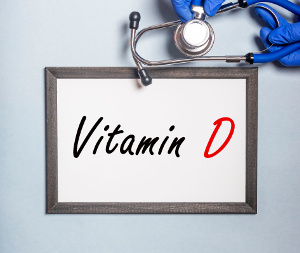 Vitamin D plays a major role in our health. The main focus, however, is on vitamin D’s importance for bones, while many health professionals are totally unaware of the nutrient’s other essential functions. According to a review article published in Nutrients, half the global population has low vitamin D levels in the blood, which increases the risk of cardiovascular disease, hypertension, cancer, type 2 diabetes, Alzheimer’s disease, respiratory infections like COVID-19, and early death. The authors also mention that vitamin D science is often inadequate or misleading because studies focus on supplementation rather than looking at blood levels of 25(OH)D. Consequently, trials are often made with far too small vitamin D doses or with too a short a trial period. In either case, blood levels of vitamin D fail to reach their optimum. What is more, levels of 25(OH)D in the blood should ideally be above 75 nmol/L in order to protect against cardiovascular disease, cancer, and early death. Because this threshold level is higher than the official threshold levels, the scientists recommend high-dosed vitamin D levels as a way to reach an optimal nutrient status.
Vitamin D plays a major role in our health. The main focus, however, is on vitamin D’s importance for bones, while many health professionals are totally unaware of the nutrient’s other essential functions. According to a review article published in Nutrients, half the global population has low vitamin D levels in the blood, which increases the risk of cardiovascular disease, hypertension, cancer, type 2 diabetes, Alzheimer’s disease, respiratory infections like COVID-19, and early death. The authors also mention that vitamin D science is often inadequate or misleading because studies focus on supplementation rather than looking at blood levels of 25(OH)D. Consequently, trials are often made with far too small vitamin D doses or with too a short a trial period. In either case, blood levels of vitamin D fail to reach their optimum. What is more, levels of 25(OH)D in the blood should ideally be above 75 nmol/L in order to protect against cardiovascular disease, cancer, and early death. Because this threshold level is higher than the official threshold levels, the scientists recommend high-dosed vitamin D levels as a way to reach an optimal nutrient status. Lack of vitamin E increases your risk of fertility problems, atherosclerosis, blood clots, and Alzheimer's disease. The diet contains eight different forms of vitamin E. The vitamin is also available in supplement form, either as natural or synthetic vitamin E, and there are huge differences in terms of their effect.
Lack of vitamin E increases your risk of fertility problems, atherosclerosis, blood clots, and Alzheimer's disease. The diet contains eight different forms of vitamin E. The vitamin is also available in supplement form, either as natural or synthetic vitamin E, and there are huge differences in terms of their effect.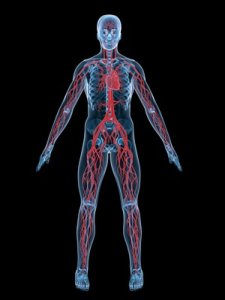 Lack of vitamin K2 increases your risk of stiff arteries and atherosclerosis, which is the leading cause of death worldwide. This was observed in two new studies, one that is published in the American Journal of Hypertension, the other in the journal Nephron. A third study that is published in Clinical Nutrition reveals that daily supplementation with vitamin K2 lowers the risk of early death caused by cardiovascular disease. Our diet used to provide substantially more vitamin K2 from fermented foods than now, and this type of food deserves a comeback. It is also important to know the difference between vitamin K1 and vitamin K2.
Lack of vitamin K2 increases your risk of stiff arteries and atherosclerosis, which is the leading cause of death worldwide. This was observed in two new studies, one that is published in the American Journal of Hypertension, the other in the journal Nephron. A third study that is published in Clinical Nutrition reveals that daily supplementation with vitamin K2 lowers the risk of early death caused by cardiovascular disease. Our diet used to provide substantially more vitamin K2 from fermented foods than now, and this type of food deserves a comeback. It is also important to know the difference between vitamin K1 and vitamin K2.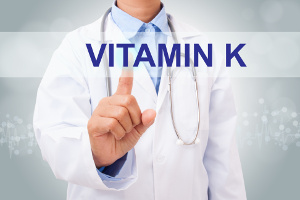 Cardiovascular diseases are the leading cause of death and, as it turns out, alarming problems with vitamin K2 deficiency are a contributing factor, according to a new review article that is published in Open Heart. Vitamin K2 regulates the body’s calcium distribution and lack of the vitamin increases the risk of atherosclerosis, arterial stiffness, insulin resistance, and heart failure. Supplementation with vitamin K2 has been seen to improve circulatory health in a number of different ways, and it also has a positive effect on inflammation and type 2 diabetes. Unfortunately, modern diets are not all that rich in vitamin K2 and the problem is made worse by the fact that different types of medicine disrupt the body’s ability to utilize the nutrient.
Cardiovascular diseases are the leading cause of death and, as it turns out, alarming problems with vitamin K2 deficiency are a contributing factor, according to a new review article that is published in Open Heart. Vitamin K2 regulates the body’s calcium distribution and lack of the vitamin increases the risk of atherosclerosis, arterial stiffness, insulin resistance, and heart failure. Supplementation with vitamin K2 has been seen to improve circulatory health in a number of different ways, and it also has a positive effect on inflammation and type 2 diabetes. Unfortunately, modern diets are not all that rich in vitamin K2 and the problem is made worse by the fact that different types of medicine disrupt the body’s ability to utilize the nutrient. of cardiovascular disease. Diet and lifestyle play a crucial role in prevention, and there are certain supplements which have been shown to reduce heart-related deaths by over 50%.
of cardiovascular disease. Diet and lifestyle play a crucial role in prevention, and there are certain supplements which have been shown to reduce heart-related deaths by over 50%. Magnesium plays a vital role in the body’s calcium distribution and is involved in over 300 enzyme processes that are relevant for our bones, circulatory system, muscles, nervous system, blood pressure, blood sugar levels, immune system, and utilization of vitamin D. For that reason, too little magnesium increases your risk of osteoporosis, diabetes, cardiovascular disease, migraine headaches, infections, PMS, plus anxiety and other neurological disorders. This is highlighted in a review article published by Medical News Today. It is therefore important to be aware of all the overlooked factors that may cause a magnesium deficiency.
Magnesium plays a vital role in the body’s calcium distribution and is involved in over 300 enzyme processes that are relevant for our bones, circulatory system, muscles, nervous system, blood pressure, blood sugar levels, immune system, and utilization of vitamin D. For that reason, too little magnesium increases your risk of osteoporosis, diabetes, cardiovascular disease, migraine headaches, infections, PMS, plus anxiety and other neurological disorders. This is highlighted in a review article published by Medical News Today. It is therefore important to be aware of all the overlooked factors that may cause a magnesium deficiency.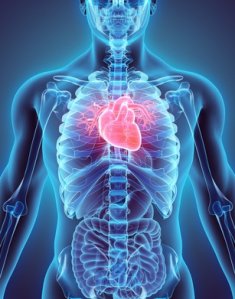 Zinc is a trace element that is necessary for around 300 enzymes that control the thyroid gland, fertility, the nervous system, the immune system, and a number of other functions. A team of scientists from the Technical University of Munich (TUM) has found a close link between the body’s zinc status and cardiac function. Although clinical zinc deficiencies are rare, short-term subclinical zinc deficiencies are more widespread than previously thought. Even a minor zinc deficiency may affect cardiac health and the countless enzyme processes that depend on the presence of zinc. Besides, zinc is a powerful antioxidant that protects cells against oxidative stress. There are many reasons why it is important to get enough of this nutrient.
Zinc is a trace element that is necessary for around 300 enzymes that control the thyroid gland, fertility, the nervous system, the immune system, and a number of other functions. A team of scientists from the Technical University of Munich (TUM) has found a close link between the body’s zinc status and cardiac function. Although clinical zinc deficiencies are rare, short-term subclinical zinc deficiencies are more widespread than previously thought. Even a minor zinc deficiency may affect cardiac health and the countless enzyme processes that depend on the presence of zinc. Besides, zinc is a powerful antioxidant that protects cells against oxidative stress. There are many reasons why it is important to get enough of this nutrient. "After about one week of taking the Q10 supplement I could feel a huge difference," says 23-year old Alan Piccini, who has been suffering from extreme fatigue and muscle aches ever since he was a child.
"After about one week of taking the Q10 supplement I could feel a huge difference," says 23-year old Alan Piccini, who has been suffering from extreme fatigue and muscle aches ever since he was a child. “Taking capsules with co-enzyme Q10 has freed me of the severe side effects of my cholesterol lowering medicine,” Mrs Franken explains.
“Taking capsules with co-enzyme Q10 has freed me of the severe side effects of my cholesterol lowering medicine,” Mrs Franken explains.